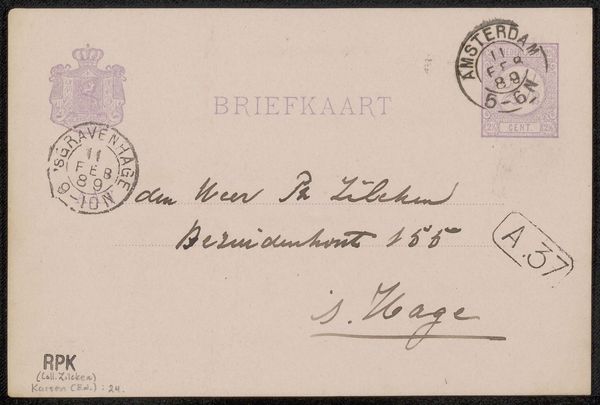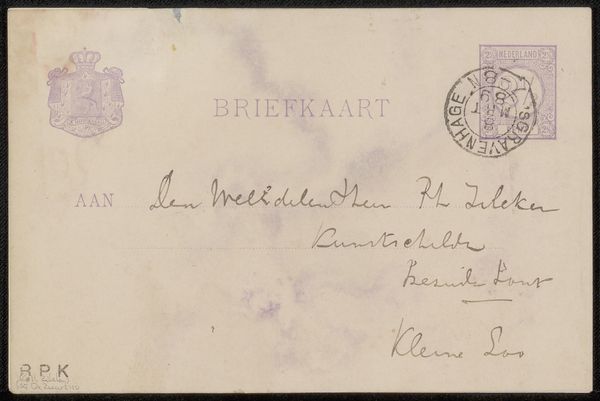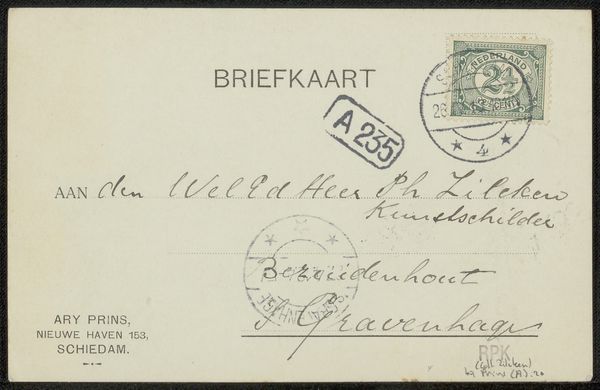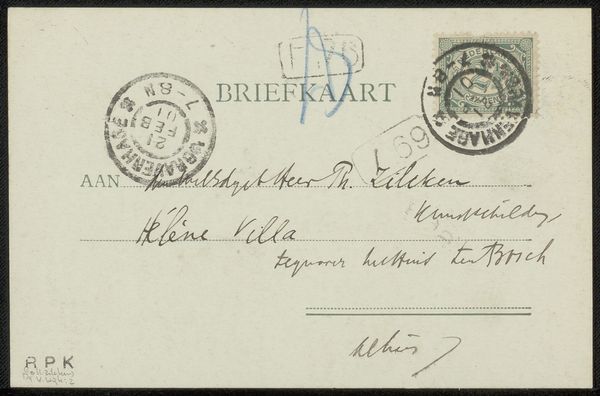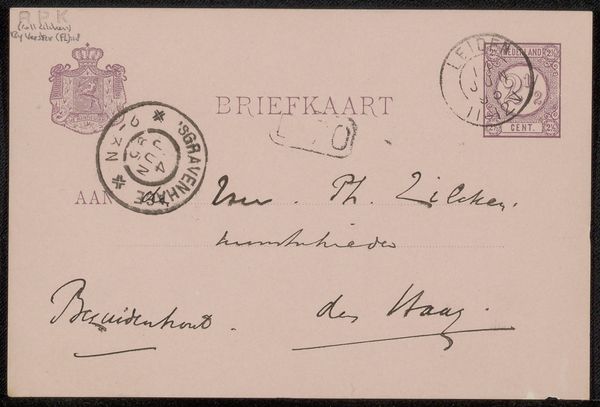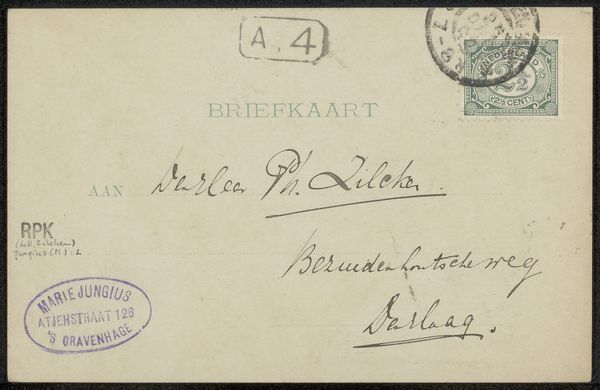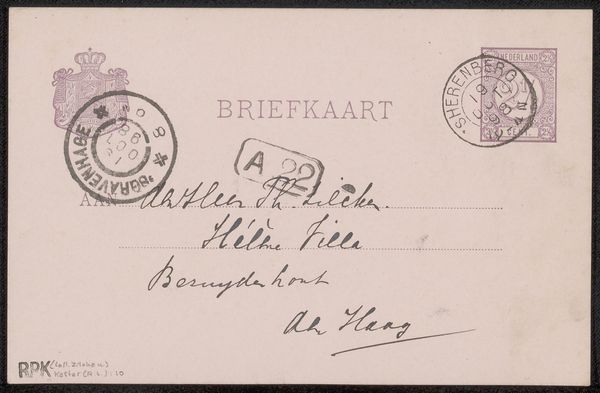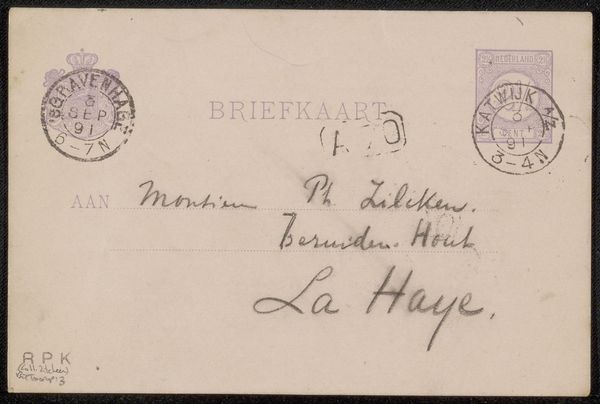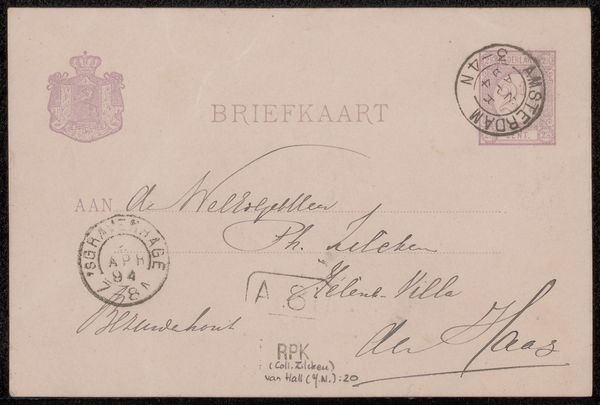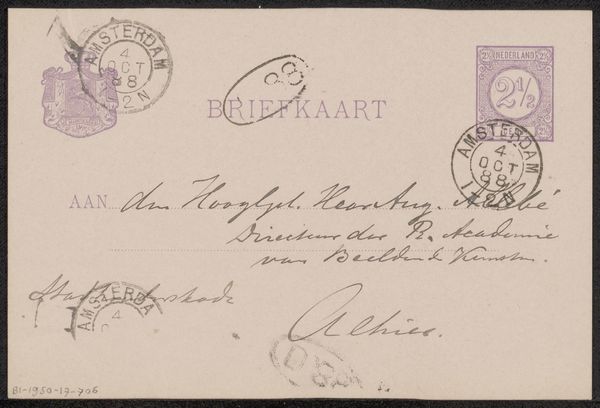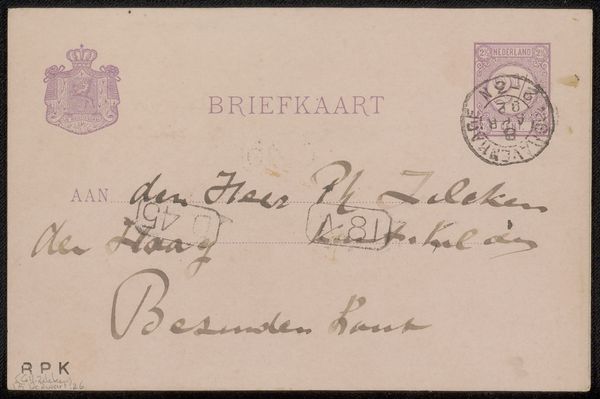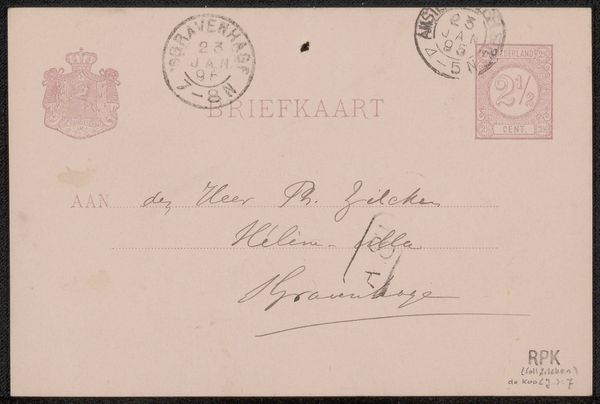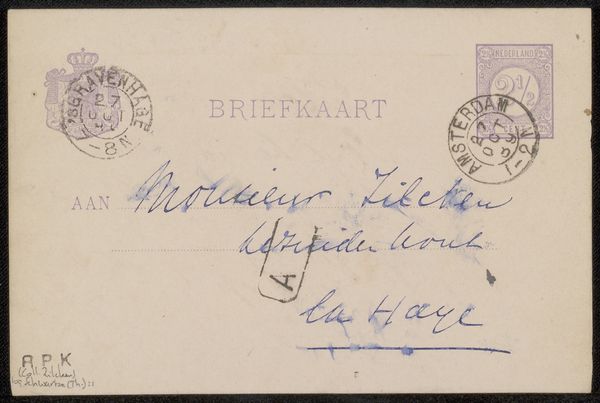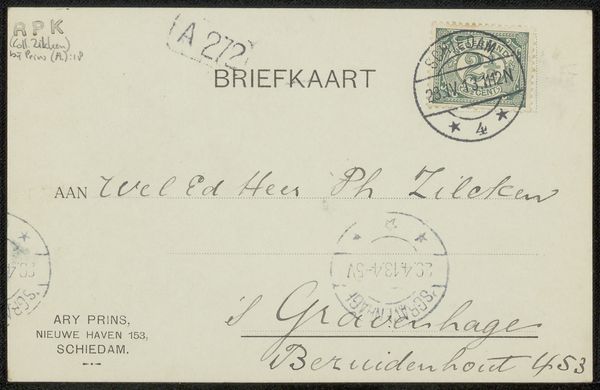
drawing, paper, ink, pen
#
portrait
#
drawing
#
hand-lettering
#
pen sketch
#
hand drawn type
#
paper
#
personal sketchbook
#
ink
#
ink drawing experimentation
#
pen-ink sketch
#
pen work
#
sketchbook drawing
#
pen
#
storyboard and sketchbook work
#
post-impressionism
#
sketchbook art
#
miniature
#
calligraphy
Copyright: Rijks Museum: Open Domain
Curator: This is an interesting artifact. Here we have a postcard to Philip Zilcken. While unsigned, the Royal Picture Gallery believes it was created between 1901 and 1912. The primary medium is ink on paper. Editor: Immediately, the fine detail of the ink work jumps out at me. But overall, the piece whispers a forgotten era of correspondence, of personal connections mediated by broader sociopolitical structures. Curator: Absolutely. Postal services themselves are fascinating inventions. Consider how the "Algemeene Postvereeniging," inscribed on the card, indicates an international effort toward universal postal access. Think about the global implications. Editor: Precisely! This card embodies both intimacy and grand-scale systems. Addressed to Zilcken at "Helène Villa, La Haye," it shrinks the world, doesn't it? Curator: It does. Zilcken, a name that carries some weight. We can surmise connections to the artistic or cultural circles of The Hague. Editor: Right, and the date it was posted. September 10, 1896. A time of significant change. We're seeing the burgeoning of mass media coupled with colonial projects unfolding across the globe. What stories might Zilcken be telling through this postal exchange, however mundane? Curator: It makes you wonder about the unseen networks behind its creation: paper mills, the ink production, and even the labor that went into the postal system itself. Editor: I see in its imperfections – the smeared ink, the faded stamp – a resilience, too. These physical elements make the past tangible in a way that transcends a purely textual narrative. Curator: Well, this brief glimpse reveals the interplay between personal narratives and broader social mechanics, an intersection so potent and vital in understanding our own present context. Editor: Exactly, and to view this postal exchange through such lenses enriches our perspective not only on art, but on the cultural forces at play during its making, challenging us to consider the unseen structures that govern our lives today.
Comments
No comments
Be the first to comment and join the conversation on the ultimate creative platform.
